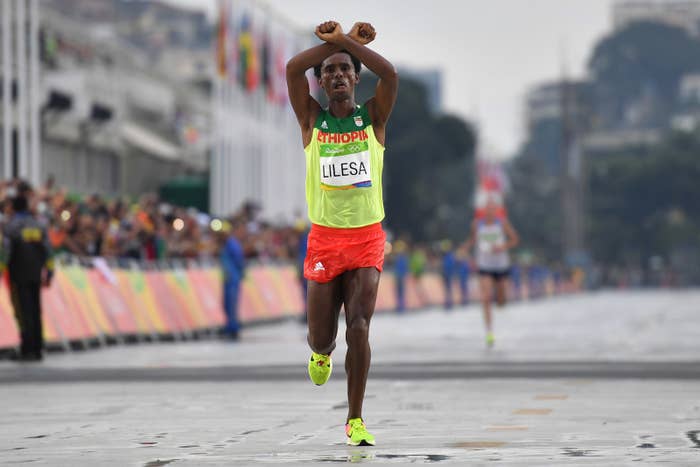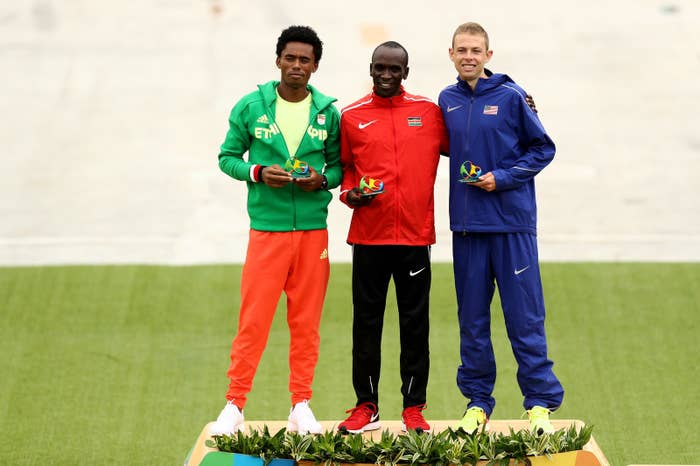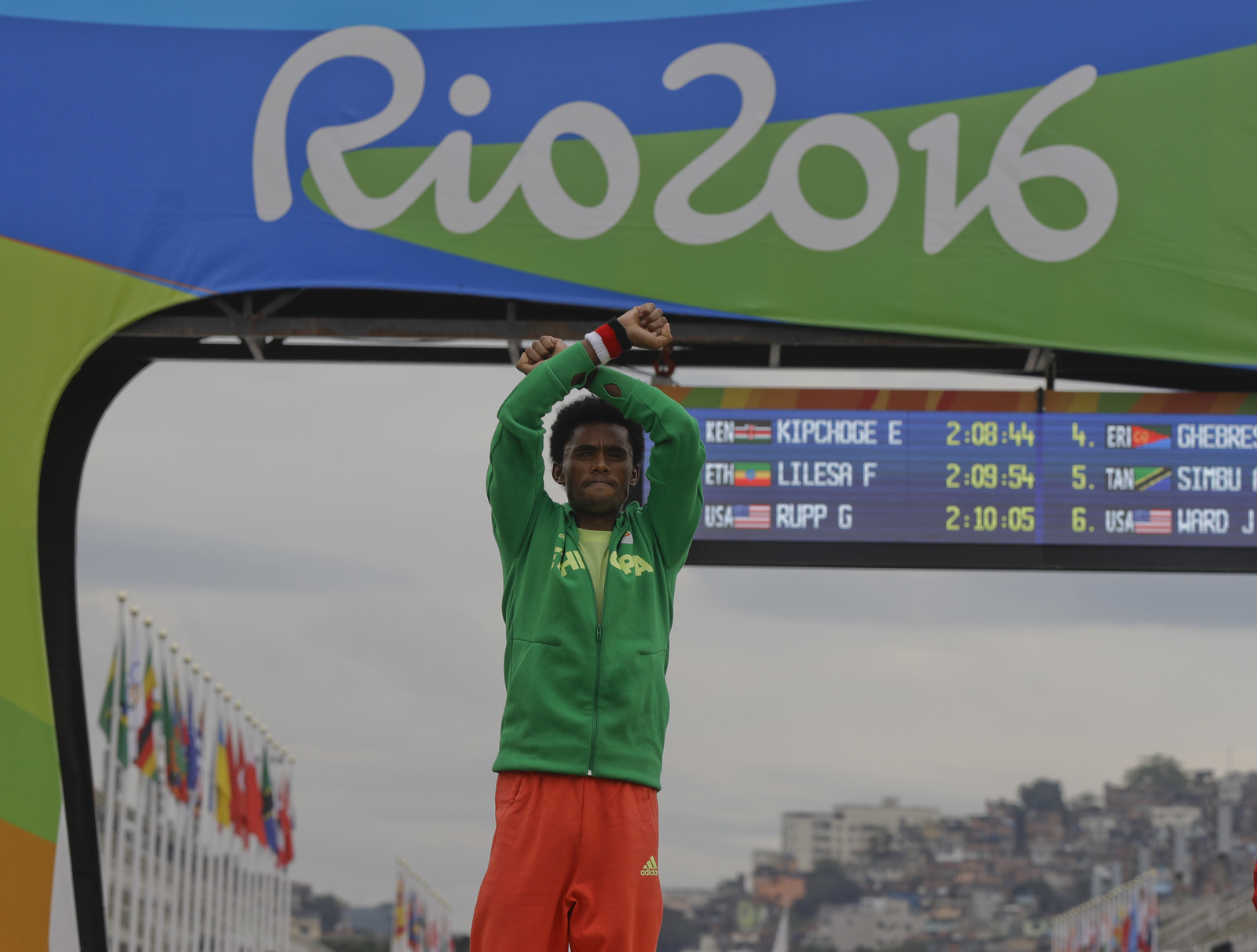
Marathon runner Feyisa Lilesa raised his arms in an X as he crossed the Olympic finish line on Sunday, a gesture of protest that he expects will make him a target of violence or government persecution in his home country of Ethiopia.
Lilesa won the silver medal in Sunday's marathon with a time of 2:09:54. As all eyes turned to him, he raised and crossed his arms — a symbol that has been associated with protests of the Oromo ethnic group in Ethiopia.
"The Ethiopian government is killing my people, so I stand with all protests anywhere, as Oromo is my tribe," Lilesa said at a press conference after his win, where he repeated the gesture. "My relatives are in prison and if they talk about democratic rights they are killed."

Lilesa, 26, told Sports Illustrated that more than a thousand Oromo people have been killed in Ethiopia in the last nine months. If he returns home, he said he fears he will now become one of them.
"If I go back to Ethiopia maybe they will kill me. If not kill me, they will put me in prison. I have not decided yet, but maybe I will move to another country," he told reporters.
Political displays and protests are banned at the Olympics, and International Olympics Committee officials told the BBC they are gathering more information about what happened.
Protests have overtaken Ethiopia for months, as Oromo people have objected to land-use plans, and more generally, the marginalization many of them feel from the Tigrayan ethnic group. Tigrayan people are a minority in the country, but hold many positions of power within its military, intelligence services, commerce, and politics, the New York Times reported. Another Oromo runner previously told NPR he had been discriminated against by Ethiopian athletics officials because of his ethnicity.
After his second-place finish, Lilesa said he's not sure what's next for him — or where he, his wife, and children will go to avoid repercussions in Ethiopia. But, he told reporters, he knew what he'd be doing later that day at his medal ceremony: holding his arms crossed, again in protest with his people.

